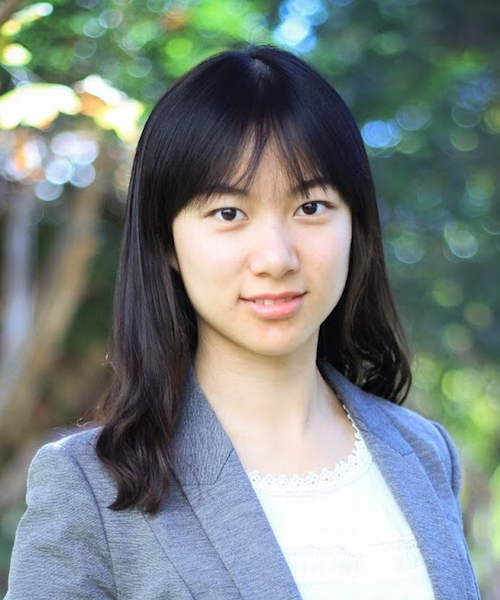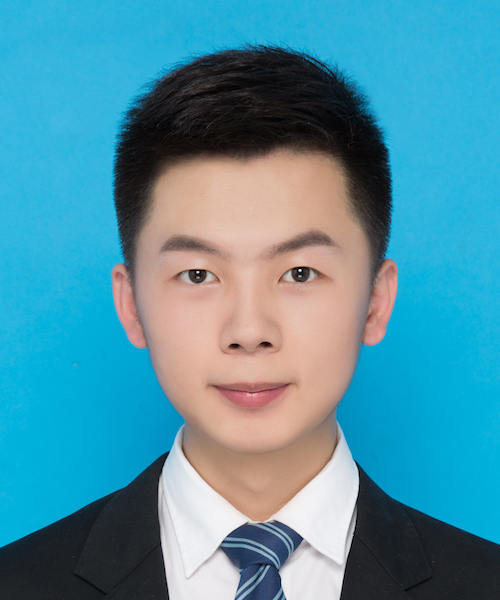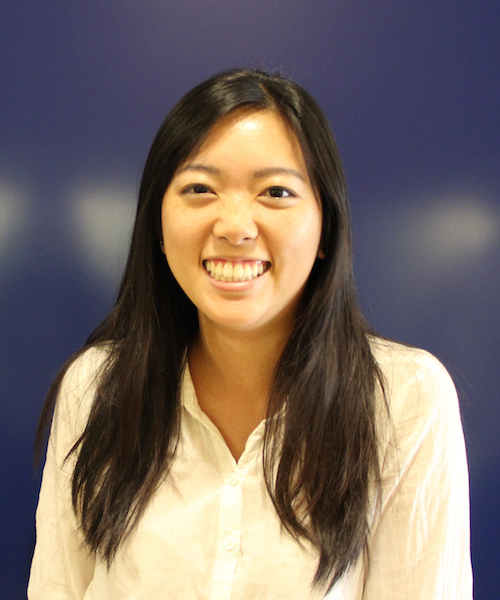
Paint this beautiful blueprint of the future together, shall we?
Ruolin Zhao | July 31, 2018
Responding To: Reflecting on the 2017-2018 U.S.-China Student Fellows Program
Jessie Dalman
“Jessie, do you think China will ever be a democracy?”
I was recently getting dinner with some American friends when one of them posed this question. I paused for a moment before replying, “No, I don’t.”
“Interesting,” she noted, clear doubt in her eyes. “Why not?”
I understood her reservations. Not long ago, I would have provided an entirely opposite answer, and I would have felt reasonably confident in doing so. After all, I have studied Chinese for eight years, during which I spent a year living and attending high school in Beijing. I also minored in Chinese language and culture in college, and worked as an intern at Caixin, a Chinese economics and investigative reporting outlet. Basically, I am as thoroughly developed a Sinophile as they come.
My interest in all things China also motivated me to apply to the Georgetown Initiative for U.S.-China Dialogue, anticipating that the program would expose me to the nuances of diplomacy and policy-making. One year later, I admit that this was a huge underestimation.
In this memo, we are tasked with reflecting on the fellowship itself, but any such reflection would be incomplete without more detailed descriptions of the other fellows in my cohort. There’s Michael, a Bostonian with an infectious laugh and an inexhaustible curiosity, and Yami, a first-generation college student who is proud, loud, and enthusiastic. The other Americans include Cynthia, whose interests encompass the environment and international politics (and Kansas City barbecue), and Ulysses, a graduate of West Point with an unrivaled capacity for loyalty and thoughtfulness. Of the Chinese students, there is Yunxin, quick to stand up for herself and for others, and Haile, who endeavors to influence global infrastructure while smiling with ease. Joy is an overwhelmingly genuine and empathetic psychologist (with a hidden talent for rap), while Ruolin is an assiduous and inquisitive student of political economy. Finally, Chenyu is the golden boy of our group, diplomatic, perceptive, and earnest.
Over the past year, I learned the most from these nine individuals that I am incredibly proud to call my dear friends. They showed me that I had unconsciously and wrongfully assumed to already know everything that I would ever need to know about China. Nigerian author Chimamanda Ngozi Adichie describes the problems inherent to this sort of perspective as “the danger of the single story.” In her view, simplified narratives encourage us to reject the whole truth in favor of convenient fractions of this whole, or ‘single stories.’ Adichie argues that because the single story “makes our recognition of our equal humanity difficult,” narratives considered in concert are immensely important. “Stories have been used to dispossess and to malign, but stories can also be used to empower and to humanize… when we realize that there is never a single story about any place, we regain a kind of paradise.”
And that is precisely what my cohort did for me. They shared their stories, and in so doing, revitalized my perspective on China by reminding me of just how much I do not know. I am a historian by training, taught to resist the teleological impulse of patronizing the past by flattening history into one storyline. But what of the present? I realize now that prior to this fellowship, I had slipped into a complacency within which I understood China as a single story, composed almost exclusively of my own experiences as an outsider looking into Chinese society. This year showed me that familiarity doesn’t diminish complexity, and that all people, places, and things are inherently contradictory, in the present as well as in the past. These lessons subsequently prepared me to better engage with the ambassadors, trade ministers, and other leaders that we met with, by enabling me to contextualize their opinions more broadly rather than trying to reconcile their perspectives with my own preconceived conclusions. I realize now that I’ll never have it all figured out--in fact, there is no way that any one of us will ever have it all figured out--but, as a wise professor of mine once noted, the best way to get closer to utopia is to hypothesize, argue, and allow yourself to be proven wrong.
The impact of this realization is best demonstrated in the conclusion of the conversation that I had with my friend a few nights ago. As several people waited patiently for me to summarize why I disagreed with the notion that China might ever become a democracy, I realized that the best explanation would begin with a description of my own evolution.
“I used to think China might become a democracy, honestly,” I admitted. “But at that time… I unconsciously believed that the Chinese public just didn’t properly understand the differences between their reality, and the realities of democracy. Like they had wool over their eyes. And if they only knew what democracy was, then they might want it.”
“But I was wrong,” I continued. “All of my hypotheses were based upon articles and papers I’d read, and passing observations from my life in Beijing. The students I’ve been working with in my fellowship… they are completely aware of the realities of their government, and democracy, and they prefer China’s system. Yunxin once asked if democracy was tyranny of the majority, for example, and I still struggle to think of refutations to that claim. And each of them obviously have nuanced points of view, so I don’t mean that my thoughts on this are definite and final… But my personal opinion, based upon the debates we’ve had, is that no, I don’t think China will become a democracy anytime soon.”
The disbelief in the gaze of some of those around me hardened, but others seemed to soften into contemplative reconsideration. The conversation moved onto a different topic, but I sat back, feeling the full force of memories of this past year continually altering my own perspective. I am still learning, and will always be, but I am fortunate enough to be able to learn with, and from, Michael, Yami, Cynthia, Ulysses, Yunxin, Haile, Joy, Ruolin, and Chenyu. Whether it is questioning the ethics of majority rule, or confronting nuclear crises on the Korean peninsula, the ten of us are unafraid to question each other, driven by mutual respect and a desire to make the world a better place. Together, we can continue to work to regain a collective paradise, one in which we are all cognizant of how much we have yet to understand, and in so doing, push us all a little closer to utopia.
Jessie Dalman is a senior at Stanford University majoring in history with a concentration in conflict studies.

Ruolin Zhao | July 31, 2018

Ulysses McGuinness | July 31, 2018

Haile Chen | July 26, 2018

Michael Mullaney | July 25, 2018

Cynthia Wang | July 24, 2018

Yamillet Payano | July 19, 2018

Chenyu Wu | July 18, 2018

Yunxin Wang | July 18, 2018

Hongjin Xu | July 16, 2018